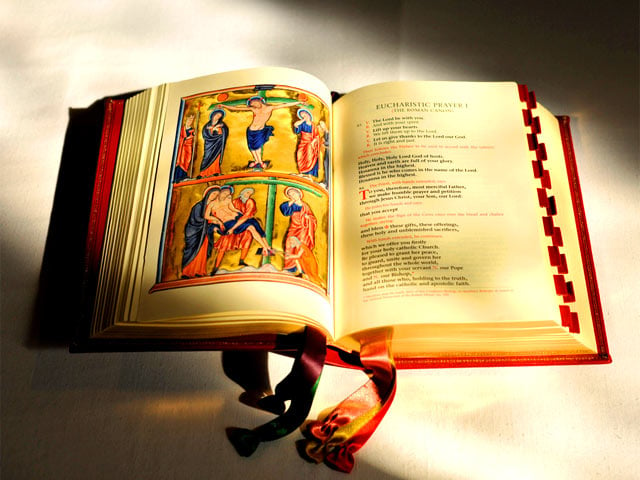- Home
- Our Community
- Our Faith
- Our Ministries
-
Parish Life
- Calendar of Events
- St. Aidan's Video Links
- Parish Blog
- News Archive
- Mass Etiquette and Information
- Ad Orientem News and Facts
- Catholic Links
- Prayers and Announcements
- Luis Dizon Reflections - Archive
- Bulletin
- Contact Us
- Search

The Spear (7th Sunday in Ordinary Time)
Click here for this Sunday’s Readings
The second half of the book of 1 Samuel chronicles David’s rise to fame and his attempts to evade King Saul, who is actively trying to kill him upon realizing that God has anointed him as king, and is gaining the support of many of the people. David becomes the leader of a ragtag group of renegades who try to evade Saul, while at the same time acknowledging his legitimate rule over Israel and refraining from engaging in armed revolt against him.
The Old Testament reading is the second of two narratives where David is in a position to eliminate his opponent. The first was in chapter 24, where Saul goes to relieve himself in a cave where David happens to be hiding. Although David’s men encourage him to kill Saul right there and then, David takes the moral high ground and refuses to do so. Now, in chapter 26, he has a second chance at doing so again.
There are a number of reasons why David would not kill Saul even though it seems to be in his interests to do so. The first is that, even though God has chosen him to become the king in the future, Saul is still God’s anointed king in the present moment. Although David knows that he will eventually replace Saul as king, he does not presume to take matters into his own hands, but trusts God to accomplish His plans in His own way and time.
The second reason David doesn’t kill Saul is because it sets a bad precedent. Even if Saul proves to be a bad king, David cannot simply topple his rule. This would send a message to the Israelites that they could do the same thing later on if they feel David has forfeited his kingship. Thus, David discourages his people from thinking that assassination is a proper way of resolving political conflicts.
David’s choice to take Saul’s spear echoes the fact that Saul had earlier used this exact same spear to try and kill David, and later his own son Jonathan (1 Samuel 19:9-10, 20:33). David’s taking of Saul’s spear is thus a rebuke of Saul’s actions. At the same time, his refusal to use it signals his refusal to stoop down to Saul’s level.
Towards the end, Saul recognizes that he is in the wrong, and declares to David that he has acted foolishly (1 Samuel 26:21). However, David does not trust these words, as Saul said the exact same thing in the past and yet continued to hunt him down (1 Samuel 24:16-21). He prudently continues to evade him, thus avoiding the danger posed by Saul’s mental instability.
David’s decision is an excellent example of Jesus’ teaching in our Gospel reading that we are to love our enemies and turn the other cheek (Luke 6:27-38). His decision is also an example of how we are to trust in the Lord and not take matters into our own hands. He does not presume to act as the agent of God’s will, contrary to Abishai’s suggestion. Instead, he waits upon the Lord to fulfill His plans, knowing that He makes everything turn out well for those who love Him and are called according to His purposes, as St. Paul puts it (Romans 8:28)
J. Luis Dizon
